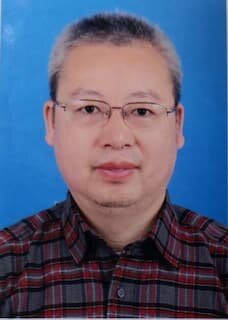 一个让数据为您服务的的网站!
一个让数据为您服务的的网站!

Xian-Ting Liang, Prof., PH.D.
Founder Biography
Education & Early Life
Professor Xian-Ting Liang is a theoretical physicist who earned his Ph.D. from the University of Science and Technology of China (USTC). He is currently a professor and doctoral advisor at Ningbo University. He has also served as a Ph.D. supervisor at the Chinese Academy of Sciences, a visiting scholar at National Cheng Kung University (Taiwan), and a member of several national academic committees.
Professor Liang's academic journey is marked by resilience and determination. Beginning his education away from home at the age of nine, he experienced multiple disruptions throughout primary and secondary schooling. Despite these challenges, he was admitted to Huaihua Normal College (now Huaihua University), becoming the only student from his high school cohort to attend college. He was also one of only two students in his department to be accepted into graduate school. He later earned a Master’s degree in Applied Mathematics and a Ph.D. in Theoretical Physics from USTC.
Academic Career
He began his teaching career in 1997 at Huaihua University, where he served as Deputy Director of the Department of Physics and later as Director of the Office of Science and Technology. In 2003, he joined Ningbo University, where he has taught a wide range of courses, including Thermodynamics, Statistical Physics, Quantum Mechanics, and Laser Physics. His Quantum Mechanics course is particularly well-received by students. He was promoted to full professor in 2006 and is the author of the forthcoming textbook Concise Quantum Mechanics.
Government Engagement
From 2005 to 2006, Professor Liang was appointed Deputy County Head of Jiajiang County, Sichuan Province, as part of a national talent exchange initiative. During his tenure, he facilitated scientific collaboration for local ceramic industry development, earning recognition from provincial media and national organizations.
Research Contributions
Professor Liang has carried out outstanding research in the fields of numerical simulation of quantum dissipative dynamics, biophotonics, quantum information and quantum computing, quantum thermodynamics, and quantum statistics. His main research in recent years includes:
- He has developed a complete set of distinctive numerical simulation methods for quantum dissipative dynamics, some of which have received significant attention from international peers.
- Using quantum dissipative dynamics, he has conducted in-depth investigations into the quantum coherence of superconducting materials, quantum devices, and living systems.
- Through quantum dissipative dynamics, he has carried out detailed theoretical studies on energy transfer between pigment-protein complexes in photosynthetic systems, and proposed the conclusion that non-Markovian environments (i.e., environmental memory effects) can significantly enhance the efficiency of energy transfer between pigment molecules.
- He has constructed a theoretical simulation framework for photon echo spectra based on numerical path integrals, and theoretically reconstructed the third-order photon echo spectra of the FMO and PE545 systems.
- He has established an entanglement criterion method based on the quantum Langevin equation, forming a distinctive theoretical tool.
- In the field of quantum thermodynamics, he clarified the definitions and computational expressions of “work” and “heat” in quantum systems, and obtained the necessary and sufficient conditions for the generation of “work” and “heat,” thereby solving a long-standing theoretical problem.
Professor Liang has supervised more than sixty graduate students. Nearly half of them continued their academic careers at prestigious universities and research institutes in China and abroad, with several receiving major talent program support such as the “Excellent Young Scientists Fund (Youqing)” and the “Distinguished Young Scholars Fund.”
Current Interests and Prospects
In recent years, Professor Liang has gradually extended his research interests to the dynamics of national macroeconomic operations, on an exploratory basis. He has sought to draw on the methods and approaches of theoretical physics used to study the microscopic world to model and analyze the evolution of economic data, and, in combination with artificial intelligence, explore trends in economic development, striving to promote the integration of science and society. At the same time, he has shown a strong interest in the construction and application of data systems for small and medium-sized enterprises, actively exploring digital transformation paths in areas such as data storage, data management, model training, and industry early-warning systems, with the aim of empowering enterprises and enhancing their data-driven decision-making capabilities.
Professor Liang is also interested in traditional Chinese medicine, classical health preservation practices, Qigong, calligraphy, and classical Chinese poetry and prose.